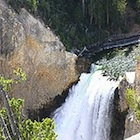Stay in touch
Communicating on the road

Almost every winter since 2001, we have gone south, first in a fifth-wheel trailer and now in a 27-foot Class C motorhome. We have travelled and stayed in resorts; we have boondocked and joined clubs; we have a solar system and a generator; and we have solved a million problems. If you have a question, we’ll try to find the answer. Send questions to [email protected].
Can I use my cellphone when we are in the United States?
The short answer is yes, but it could turn out to be very expensive. If your provider has a North American plan, it is generally quite costly. If they don’t have a plan, they charge roaming fees. When we leave Canada, we pick up a pay-as-you-go cellphone and phone cards while in the U.S.
What about using the Internet?
Just a few years ago, getting Internet service was a real challenge. Now Wi-Fi hot spots are growing daily—almost every library, larger RV parks, loads of truck stops and coffee shops have connections.
Another option is the air card (wireless router) that plugs into the computer’s USB port. The service used to be available only with a contract, but recently U.S. service providers have introduced pay-as-you-go plans. Air cards use existing cell service connections. Virgin Mobile currently offers unlimited use for $40 per month.
We utilize two online voice and video programs. Skype (www.skype.com) is one service we use. When both communicators have Skype, it costs nothing. We spent an extra $2.95 a month and can connect with any phone in Canada or the U.S.
Magic Jack (www.magicjack.com) is another VOIP (voice over the Internet program). After an initial investment of $39.95, the annual fee is $19.95 for unlimited local and long distance calls.







